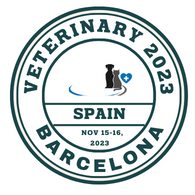Layer Poultry Farming
Layer poultry farming means raising egg-laying poultry birds for commercial egg production. Layer chickens are a particular species of hens which need to be raised from one day old, and they start laying eggs commercially from 18-19 weeks of age. They remain to lay eggs continuously till 72-78 weeks of age.
Disease in Layer Poultry Farming
- Fowl Pox.
- Newcastle Disease.
- Infectious Bronchitis.
- Avian Influenza.
- Infectious Laryngotracheitis.
- Mycoplasma synoviae.
- Aspergillosis.
- Marek's Disease.
Layer poultry farming is a specialized branch of poultry farming focused on raising hens primarily for the production of eggs. This type of farming involves the careful management of layers to ensure optimal egg production, health, and well-being. Here are key aspects of layer poultry farming: Selection of Layer Breeds-Farmers choose specific layer breeds known for their high egg-laying potential. Common breeds include White Leghorn, Rhode Island Red, Sussex, and Plymouth Rock. Housing and Infrastructure-Layer hens require well-ventilated and comfortable housing with proper nesting boxes and perches. The housing should protect the birds from extreme weather conditions and predators.
Related Conference of Layer Poultry Farming
Layer Poultry Farming Conference Speakers
Recommended Sessions
- Animal Structure & Function
- Animal Vaccines
- Emergency and Critical Care
- Internal Medicine
- Anesthesia and Analgesia
- Animal Dermatology
- Animal Genetics
- Animal Microbiology
- Animal Physiology
- Animal Reproduction
- Animal Welfare
- Behavioral Medicine
- Clinical Pharmacology
- Environmental Threats
- Human-Animal Bond
- Layer Poultry Farming
- Small Animal Medicine and Surgery
- Veterinary and Animal Science
- Veterinary and Social Science Research
- Veterinary Dentistry
- Veterinary Parasitology
- Veterinary Telemedicine
- Wildlife and Ecosystem Health
- Zoonotic & Infectious Diseases
Related Journals
Are you interested in
- Animal Nutrition & Welfare - Veterinary Summit 2026 (Japan)
- Animal Nutrition, Welfare & Ethics - Veterinary Summit 2026 (Japan)
- Antimicrobial Resistance & Global Biosecurity - Veterinary Summit 2026 (Japan)
- Companion Animal Medicine & Surgery - Veterinary Summit 2026 (Japan)
- Livestock Health & Production Management - Veterinary Summit 2026 (Japan)
- Veterinary Biotechnology & AI in Animal Health - Veterinary Summit 2026 (Japan)
- Wildlife, Aquatic & Exotic Animal Medicine - Veterinary Summit 2026 (Japan)
- Young Researchers & Innovation Forum - Veterinary Summit 2026 (Japan)
- Young Veterinarians & Research Innovation Forum - Veterinary Summit 2026 (Japan)
- Zoonotic Diseases & One Health - Veterinary Summit 2026 (Japan)

